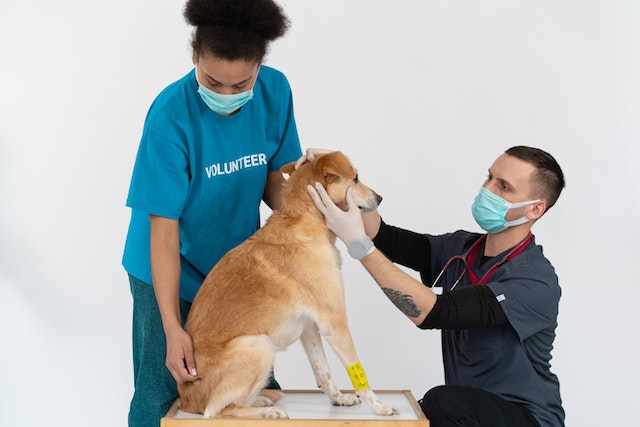Beagle Lifespan [9 Factors to Consider]
![Beagle Lifespan [9 Factors to Consider] Beagle Lifespan](https://petcreeks.com/wp-content/uploads/2023/05/Beagle-Lifespan.jpg)
Today, let’s dive into the fascinating world of Beagles and uncover the secret behind their lifespan.
Have you ever wondered how long these adorable hounds can be by your side, wagging their tails with joy?
Well, get ready, because we’re about to explore the Beagle lifespan like never before, and you won’t want to miss it!
Beagle Lifespan
Beagles typically live between 12 to 15 years, but some can live into their late teens.
Proper care, including a balanced diet, regular exercise, and routine veterinary check-ups, can contribute to their longevity.
Genetics also play a role, as some beagles may be prone to certain health issues that can affect their lifespan.
Overall, providing a healthy and loving environment can help ensure a beagle lives a long and happy life.
Boston Terrier Stages of Life
Here are the stages of life in beagles:
Stage 1: Puppyhood – Ah, the cuteness overload! This is when Beagle pups are just a few weeks old, stumbling around on their tiny paws, and discovering the world with their curious noses. They’re like little explorers, soaking up everything around them and learning the ropes of being a dog. It’s all about playtime, naps, and of course, those puppy eyes that can melt even the toughest hearts.
Stage 2: Adolescence – Welcome to the rebellious teenage phase! Around 6 to 18 months, Beagle pups start asserting their independence and testing boundaries. They might become a bit more stubborn and have selective hearing (sound familiar, humans?). This is the time for patient training, socialization, and channeling all that energy into positive outlets like games and activities.
Stage 3: Adulthood – Now we’re talking about the prime time of a Beagle’s life. From about 1 to 7 years old, they’re at their most active and energetic. This is when they’re full of zest, ready for adventures, and always up for a good sniff-around. Plus, they’re at their peak physical condition, so it’s the perfect time for long walks, playdates, and maybe a little agility training if they’re into it.
Stage 4: Senior Years – As Beagles enter their golden years, usually around 7 years and older, they start to mellow out a bit. They might not have the same spring in their step, but they’ve got wisdom and a whole lot of love to give. It’s important to adjust their exercise and diet to suit their changing needs, and, of course, give them all the cuddles and comfort they deserve.
Factors Influencing Beagle Lifespan
The following are some of the factors influencing beagle lifespan:
1. Breed Genetics
When it comes to breed genetics, Beagles, like all dog breeds, can be predisposed to certain health conditions due to their genetic makeup.
For Beagles, common genetic health concerns can include issues with their ears, such as infections and allergies, as well as conditions like hypothyroidism and intervertebral disc disease.
Regular veterinary check-ups, genetic testing, and being aware of any breed-specific health risks can help in early detection and proactive management of these potential issues, ultimately contributing to a longer and healthier life for our Beagle companions.
2. Nutrition
The role of nutrition in a Beagle’s lifespan cannot be overstated. A well-balanced diet that meets their specific nutritional needs is crucial for their overall health and longevity.
Beagles are prone to obesity, which can lead to various health problems, so it’s important to provide them with the right amount of high-quality food to maintain a healthy weight.
Additionally, essential nutrients such as protein, vitamins, and minerals play a key role in supporting their immune system, bone health, muscle strength, and overall vitality.
Proper hydration is also vital for their well-being. Regular veterinary consultations can help in determining the best diet for your Beagle’s specific needs.
3. Stress Management
Beagles are known for their friendly and sociable nature, but they can experience stress just like any other dog.
Stress in Beagles can stem from various sources, including separation anxiety, changes in their environment, or lack of mental and physical stimulation.
Chronic stress can have a negative impact on their overall health and well-being, potentially leading to issues such as digestive problems, suppressed immune function, and behavioral challenges.
Providing them with regular exercise, mental stimulation, a comfortable living environment, and positive reinforcement training can help in managing their stress levels and promoting a healthier, longer life.
4. Neutering/Spaying
The decision to spay or neuter a Beagle can have a significant impact on their lifespan and overall health.
Spaying female Beagles can reduce the risk of uterine infections and mammary tumors while neutering male Beagles can lower the risk of testicular cancer and certain behavioral issues.
Additionally, spaying and neutering can help in reducing the likelihood of roaming behaviors, which can expose them to various risks such as traffic accidents and altercations with other animals.
It’s important to discuss the timing and potential benefits of spaying or neutering with a veterinarian to make an informed decision based on the individual needs and circumstances of the Beagle.
5. Health Issues
Beagles, like many dog breeds, are susceptible to certain genetic and acquired health conditions. It’s important to be aware of potential health issues that can impact a Beagle’s lifespan.
This includes conditions such as epilepsy, a neurological disorder that can cause seizures; hypothyroidism, a thyroid gland disorder that can lead to weight gain, lethargy, and skin problems; and intervertebral disc disease, a condition affecting the spinal discs that can cause pain and mobility issues.
Regular veterinary check-ups, a nutritious diet, and appropriate exercise can help manage these conditions and contribute to a longer and healthier life for your Beagle.
Additionally, early detection and treatment of health issues can significantly impact a Beagle’s overall well-being and longevity.
6. Environmental Factors
The environment in which a Beagle lives plays a crucial role in their overall health and lifespan.
Beagles are curious and active dogs, often exploring their surroundings with great enthusiasm.
As a result, it’s important to create a safe and stimulating environment for them. This involves being mindful of potential hazards such as toxic plants, household chemicals, and small objects that could be swallowed.
Additionally, extreme temperatures can also pose risks to a Beagle’s health, so it’s essential to provide appropriate shelter and protection from severe heat or cold.
By creating a safe and enriching environment, you can help ensure that your Beagle remains healthy and happy, which can positively impact their longevity.
7. Weight Management
Weight management is a critical aspect of maintaining a Beagle’s overall health and extending their lifespan.
Beagles are known for their hearty appetites and love of food, which can predispose them to obesity if not carefully managed.
Obesity in Beagles can lead to a range of health issues, including joint problems, diabetes, and heart disease, all of which can significantly reduce their lifespan.
Monitoring their diet, providing regular exercise, and avoiding overfeeding are essential in preventing obesity and maintaining a healthy weight for your Beagle.
A balanced and portion-controlled diet, along with regular physical activity, can help keep your Beagle at a healthy weight, reducing the risk of obesity-related health issues and contributing to a longer, healthier life.
8. Access to Medical Care
Beagles, like all pets, benefit greatly from regular veterinary care.
Routine check-ups, vaccinations, and timely medical attention when needed are essential for maintaining their health and catching potential issues early.
Regular dental care, including teeth cleaning, can also contribute to their overall well-being.
Furthermore, spaying or neutering can help prevent certain health problems and unwanted behaviors, potentially extending their lifespan.
9. Parasite Control
Protecting Beagles from parasites such as fleas, ticks, and internal parasites is vital for their well-being.
Regular preventive treatments, such as flea and tick control products, deworming, and heartworm prevention, can safeguard them from potentially life-threatening conditions.
Additionally, maintaining a clean living environment and minimizing exposure to areas where parasites thrive can further contribute to their health and longevity.
Ways to Ensure That Your Beagle Lives a Longer
Here are some effective ways to ensure that your Beagle lives a longer and healthier life:
1. Balanced and Nutritious Diet: Provide your Beagle with a well-balanced and nutritious diet. Feed them high-quality dog food that is appropriate for their age, size, and activity level. Consult with your veterinarian to determine the best diet plan for your Beagle.
2. Portion Control: Beagles have a tendency to overeat and gain weight easily. Avoid free-feeding and establish a regular feeding schedule. Measure their food portions to prevent excessive weight gain, which can lead to various health issues.
3. Regular Exercise: Beagles are an active breed and require regular exercise to maintain a healthy weight and mental stimulation. Engage them in daily walks, play sessions, and activities that allow them to use their natural hunting instincts.
4. Mental Stimulation: Beagles are intelligent dogs that thrive on mental stimulation. Provide them with puzzle toys, interactive games, and obedience training to keep their minds active and prevent boredom.
5. Preventive Veterinary Care: Regular veterinary check-ups are essential for your Beagle’s overall health. Schedule annual wellness exams, vaccinations, parasite control, and dental care. Early detection of any health issues can help prevent or manage them effectively.
6. Dental Health: Beagles are prone to dental problems, so it’s crucial to establish a dental care routine. Regularly brush your Beagle’s teeth using a dog-friendly toothbrush and toothpaste. Additionally, provide dental chews or toys that promote dental hygiene.
7. Weight Management: Obesity can lead to numerous health problems, including joint issues, diabetes, and heart disease. Monitor your Beagle’s weight and body condition regularly. If necessary, adjust their diet and exercise routine to maintain a healthy weight.
8. Socialization and Training: Beagles are social dogs that thrive on human companionship. Proper socialization from a young age helps them develop into well-rounded and happy dogs. Additionally, invest time in basic obedience training to ensure their safety and strengthen your bond.
9. Love and Attention: Lastly, shower your Beagle with love, care, and attention. Spend quality time with them, provide regular affection, and create a loving environment. A happy and stress-free Beagle is more likely to lead a longer and healthier life.
Remember, every Beagle is unique, so it’s essential to tailor their care to their specific needs. Regular communication with your veterinarian will help you make informed decisions about your Beagle’s health and well-being.
Learn more about how long beagle mixes live.
Related Questions
How long do Beagles usually live?
Beagles typically live between 12 to 15 years, but with proper care and a healthy lifestyle, some Beagles have been known to live into their late teens.
What factors can influence a Beagle’s lifespan?
Several factors can impact a Beagle’s lifespan, including genetics, diet, exercise, veterinary care, and overall lifestyle. Providing a loving and nurturing environment, regular vet check-ups, and a balanced diet can all contribute to a longer, healthier life for your Beagle.
Are there any common health issues that can affect a Beagle’s lifespan?
Beagles are generally robust dogs, but they are prone to certain health issues such as obesity, ear infections, and epilepsy. Regular exercise, proper grooming, and a well-balanced diet can help mitigate these risks and contribute to a longer, happier life for your Beagle.
Learn more about the causes of death in beagles.
How can I help my Beagle live a longer and healthier life?
Ensuring your Beagle receives regular exercise, a nutritious diet, mental stimulation, and regular veterinary check-ups can all contribute to a longer and healthier life. Additionally, keeping an eye on their weight and dental health can also impact their overall well-being.
At what age do Beagles usually start to show signs of aging?
Beagles typically start to show signs of aging around 7 to 10 years old. This may include decreased energy, changes in appetite, and potential health issues. It’s important to be mindful of these changes and provide them with the care and attention they need as they enter their senior years.
What can I do to support my Beagle as they age?
As your Beagle gets older, it’s important to be attentive to their changing needs. Providing them with a comfortable environment, regular gentle exercise, and a diet tailored to their senior needs can all help support their aging process. Additionally, regular veterinary check-ups can help identify and address any age-related health concerns proactively.
Learn more about beagle old age issues.
Conclusion
So, there you have it—Beagles and their incredible lifespan! From their playful puppy years to their loyal companionship in their golden days, Beagles bring joy and love into our lives for a remarkable average of 12 to 15 years. So, if you’re considering adding a Beagle to your family, get ready for years of fun, adventure, and cherished memories together.






